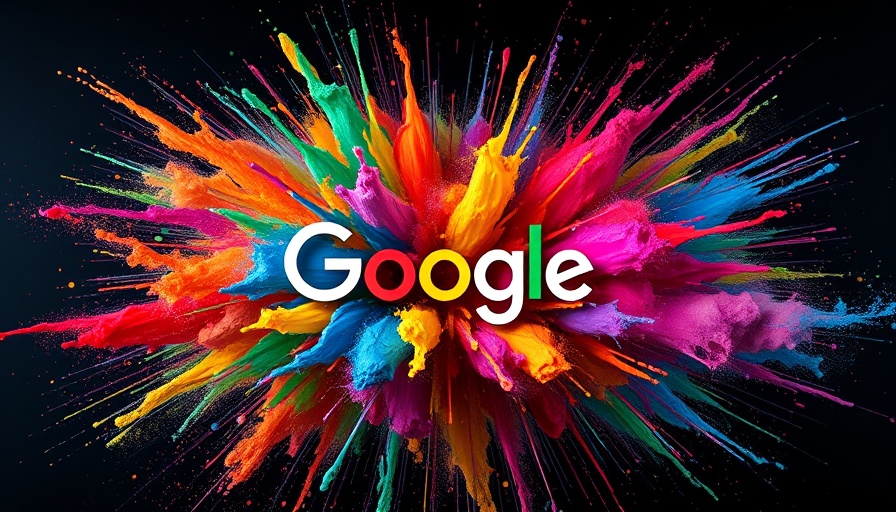
Understanding Google's March 2025 Core Update: Implications for Businesses
As Google concluded its March 2025 core update, marketers and small business owners worldwide are grappling with the immediate implications of the changes. Spanning from March 13 to March 27, this update is critical in shaping how content is ranked and presented in search results, especially for those reliant on organic traffic. Unlike past updates, which often caused seismic shifts in website visibility, early signals indicate that this rollout may have been less impactful for many, although others experienced notable fluctuations.
What Your Business Needs to Know About Core Updates
Google's core updates are designed to enhance the quality of search results, ensuring users are presented with relevant and satisfying content. It levels the playing field, rewarding quality over manipulative tactics. For small businesses, staying abreast of these changes is crucial; adapting to Google’s evolving criteria can mean the difference between visibility and obscurity. In this latest update, Google specifically stated its commitment to be "better at surfacing relevant, satisfying content for searchers from all types of sites," sending a signal to creators about the importance of quality content.
Distinguishing Your Content in a Changing Landscape
As the search landscape evolves, businesses must differentiate their content effectively. The core updates encourage content creators to prioritize value and relevance. If your website was affected, it’s vital to conduct a thorough content audit, aligning your offerings with Google's guidelines. Factors such as depth of content, user engagement, and authority on topics can significantly influence how your site performs.
Adapting Marketing Strategies Post-Update
In light of the March 2025 core update, small businesses should consider recalibrating their digital marketing strategies. Incorporating advanced AI tools can streamline the process of content optimization. For instance, utilizing AI-driven SEO tools can help analyze competitors' strengths and weaknesses, pinpointing areas for improvement in your strategy. Maintaining a high level of adaptability will be crucial; those who can pivot their approach swiftly may find themselves gaining an edge.
Future Trends in SEO: What Lies Ahead?
Google’s announcement hinted at more frequent core updates this year, signaling a shift towards a more dynamic algorithm that consistently evolves. As marketers, understanding the potential implications of these changes should prompt proactive measures in strategy development. Keeping an ear to the ground—such as engaging with SEO communities and leveraging data analytics—can help businesses anticipate trends and refine their approach to maintain and improve search rankings.
The Human Connection: Strengthening Relationships Through Quality Content
In an era where technology and algorithms govern digital visibility, the importance of human connection in marketing cannot be overstated. Connecting emotionally with your audience through personalized content will continue to set successful businesses apart. Crafting narratives that reflect empathy and understanding allows small businesses to develop long-lasting relationships with customers, which in turn drives engagement and loyalty.
Practical Steps: Implementing Changes After the Update
To respond effectively to the changes introduced by the March 2025 core update, businesses should consider these practical steps:
- Conduct a content audit to evaluate quality and relevance.
- Invest in AI tools to streamline SEO efforts and site optimization.
- Engage with your audience to understand their needs and preferences better.
- Regularly update content to keep information fresh and relevant.
Small adjustments can lead to significant improvements in search rankings and consumer engagement, making informed strategies more essential than ever.
As we move further into 2025, adapting to Google's core updates will become a regular part of digital marketing strategy. It’s not just about survival but about thriving in a fast-paced, competitive online landscape. Embrace the changes, refine your approach, and focus on creating valuable content that resonates with users.
Embrace the future of digital marketing by equipping yourself with the tools and knowledge you need to navigate Google's evolving ecosystem. Stay informed about upcoming updates, and commit to continuous improvement to ensure your business not only survives but flourishes.
 Add Row
Add Row  Add
Add 




Write A Comment